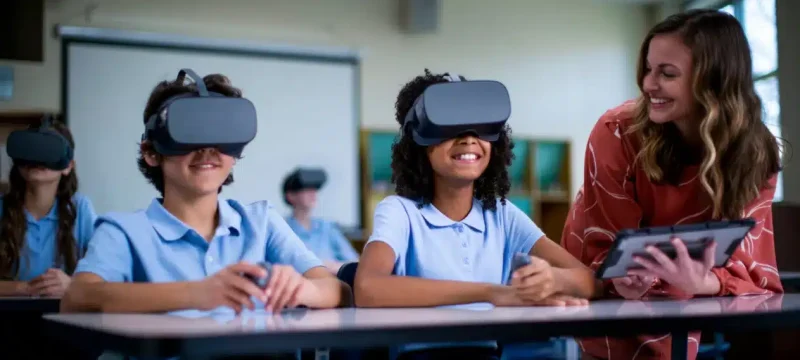K-12 education refers to education from kindergarten to grade-12. It provides academic as well as professional skills, motivating students to become independent. It provides the basic knowledge and necessary skills for success in higher levels of education and the practical life.
The 12 classrooms are going through an extreme change that expands on their rich history and embraces the potential outcomes of new innovation. From its unassuming starting points as a one-room school building to the present current instructive establishments, the classroom has forever been a reflection of society’s convictions and objectives. We have seen classrooms change over the long run to foster their style and adequacy. The earliest study halls were conventional rooms with simple furnishings and scarcely any extras. Yet, as how we might interpret schooling has extended, so has our methodology for creating steady learning conditions. Study hall design has developed over the long haul and added things like chalkboards, work areas, and reading material. The effect of innovation in the homeroom couldn’t possibly be more significant.
The 12 classrooms are going through an extreme change that expands on their rich history and embraces the potential outcomes of new innovation. From its unassuming starting points as a one-room school building to the present current instructive establishments, the classroom has forever been a reflection of society’s convictions and objectives. We have seen classrooms change over the long run to foster their style and adequacy. The earliest study halls were conventional rooms with simple furnishings and scarcely any extras. Yet, as how we might interpret schooling has extended, so has our methodology for creating steady learning conditions. Study hall design has developed over the long haul and added things like chalkboards, work areas, and reading material. The effect of innovation in the classroom couldn’t possibly be more significant.
One of the biggest changes to come is the integration of virtual reality (VR). The computerization of tools and resources has altered how we teach students in recent years. Future classrooms will use VR to give students an immersive learning environment and incorporate augmented reality technologies into routine lessons. Innovations in augmented reality will help students explore ideas more intelligently and go beyond the course readings. Imagine students taking science exams in simulated research facilities or participating in virtual field trips to verify milestones—all from the comfort of their classroom. The classroom of the future will be significantly shaped by man-made thinking. Flexible learning stages powered by AI will customize instruction to meet the needs of each understudy. This personalized approach will ensure that no one understudy gets left behind while simultaneously testing the understudies who succeed. Cooperation will also be at the forefront of future classrooms. As correspondence innovation advances, understudies across the globe will be able to interact with one another on a regular basis. This global network will foster culturally diverse understanding and empower cooperative enterprises that transcend geographical boundaries. Conventional methods of assessment may become obsolete in the near future. State-administered tests may be replaced by more comprehensive assessment methods that test understudies’ decision-making skills, critical thinking skills, and creativity. Simulation intelligence calculations can help break down and interpret understudy execution data, providing instructors with valuable pieces of information to customize their educational systems. In summary, the K- 12 study hall representing the future will continue to grow and evolve with mechanical progressions. These developments will enhance opportunities for growth and equip understudies with skills that are necessary for success in a rapidly changing world.







